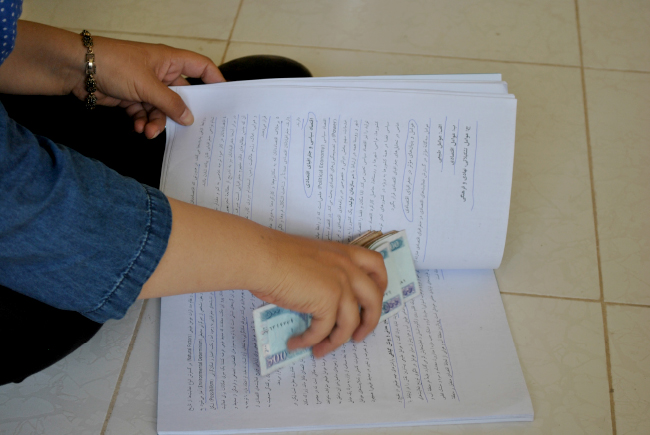Political Solutions for counter-corruption
While according to Fukuyama’s theory and this article are having deep political roots, as it was offered in the first part of this article, it is necessary to offer political solutions for such a phenomenon. In fact, creation of laws, procedures, and policies on counter-corruption and also, methods for prevention of corruption are all in a way political. However, this is better that all of these things be based on political plans.
However, what is political solution? Fighting corruption is a long process and needs time. This is also irreversible that cannot be achieved in short period of time, and the only way to fight this menace is political will. In other words, in the process of fighting corruption three things should be always considered. First, corruption is unavoidable, tangible and real that exists everywhere. Second, fighting corruption is a long term process that cannot succeed in short period of time. Third, we should not get disappointed as our fight should lead to results as it did in other countries. Keeping these three important issues in mind, only a political solution can be used. The basis for political solution is strong political will that fortunately our government seems to have it. Improvements in fight against corruption in Afghanistan and positive reports on the government’s measures and also reforms in the relevant laws and regulations plus the reforms in financial and procurement affairs all prove that there exists a strong will on behalf of the government. Now it seems that political will to fight corruption exists more than ever and this in itself is a positive sign in counter-corruption front.
According to the World Bank, a counter-corruption strategy stands on five key elements:
- Increasing political accountability
- Strengthening civil society’s participation
- Creation of a competitive private sector
- Removal of institutionalized barriers to reach to power
- Improvement of government administration
There is no doubt that all of the issues mentioned above are necessary and important, but it seems in Afghanistan we need more fundamental measures as preconditions. As already explained, the foundations of the government do not have enough stability. First of all, every effort should be made towards strengthening the foundations of the government and its stability. According to Lucian W. Pye, a famous political science scholar, basic criteria of government are “compatibility”, “complexity”, “independence” and “solidarity”. Now all efforts should focus around establishment of these criteria that is a continues process itself.
However, what is said does mean to ignore possible urgent solutions to fight corruption. Now that strong will to counter corruption exists inside the government, some urgent solutions that are based on political basis should receive attention. Main solutions that can be used at the moment by the government are as follows:
Direct Fight
In direct fight, the government should fight corruption and its manifestations. All government resources should be used for this purpose. The measuresthe government has had seems to be related to this level of fight. Establishment of the high council of counter-corruption, amendment of the relevant laws and regulations, unprecedented astringency on public offices, oversight on five key ministries that the highest load of financial works, and establishment of the national procurement committee under chairmanship of the President are among the important measures that prove a strong political will to fight corruption.
Measures to prevent
Preventing measures are experienced in all the countries of the world that dealt with corruption. At this level, the government should provide for all the basic needs of government employees. Here, implementation of punishment and awards is among the key efforts that can be effective in prevention of corruption to happen. Promotional acts should not be limited to giving awards and job promotions, but it should also include a culture that highlights good work and honesty. Preventing measures should not be about people but also should include transparent policies, institutionalization of accountability, and creation of legal procedures for prevention of corruption
Strengthening Monitoring and Evaluation
One of the main ways to reduce corruption that is political is to establish a system for monitoring and evaluation. Monitoring and evaluation is basically a political phenomenon as it depends on the type of the system and the level of modernization of bureaucracy in a country. Until an organic relationship among the branches of the country’s administrative system is not established, a modern and standard monitoring and evaluation mechanism cannot be created. It is natural that in short term an organic system cannot be produced. However, with regards to the growth of knowledge in the human resources and the educated generation, and also with regards to the growth of the new technology, more facilities and possibilities are available in order to make the system organic. The government can simultaneously strengthen the basic foundations of the government and introduce an effective monitoring and evaluation mechanism with the aim to reduce corruption.
Cultural Strategies
Cultural strategies are among the ways that is not limited to the government, media, schools, universities, civil society organizations, mosques, religious entities, etc. should also take a role. Notions such as national identity, national unity, political participation, national symbols and values such as democracy, freedom, human rights, and even religious teachings either do not have a shaped or even if they are shaped, they are shaped wrongly. Therefore, changes into the social and political understandings and institutionalization of new notions are necessities that can help in reduction of corruption.
Last Words

